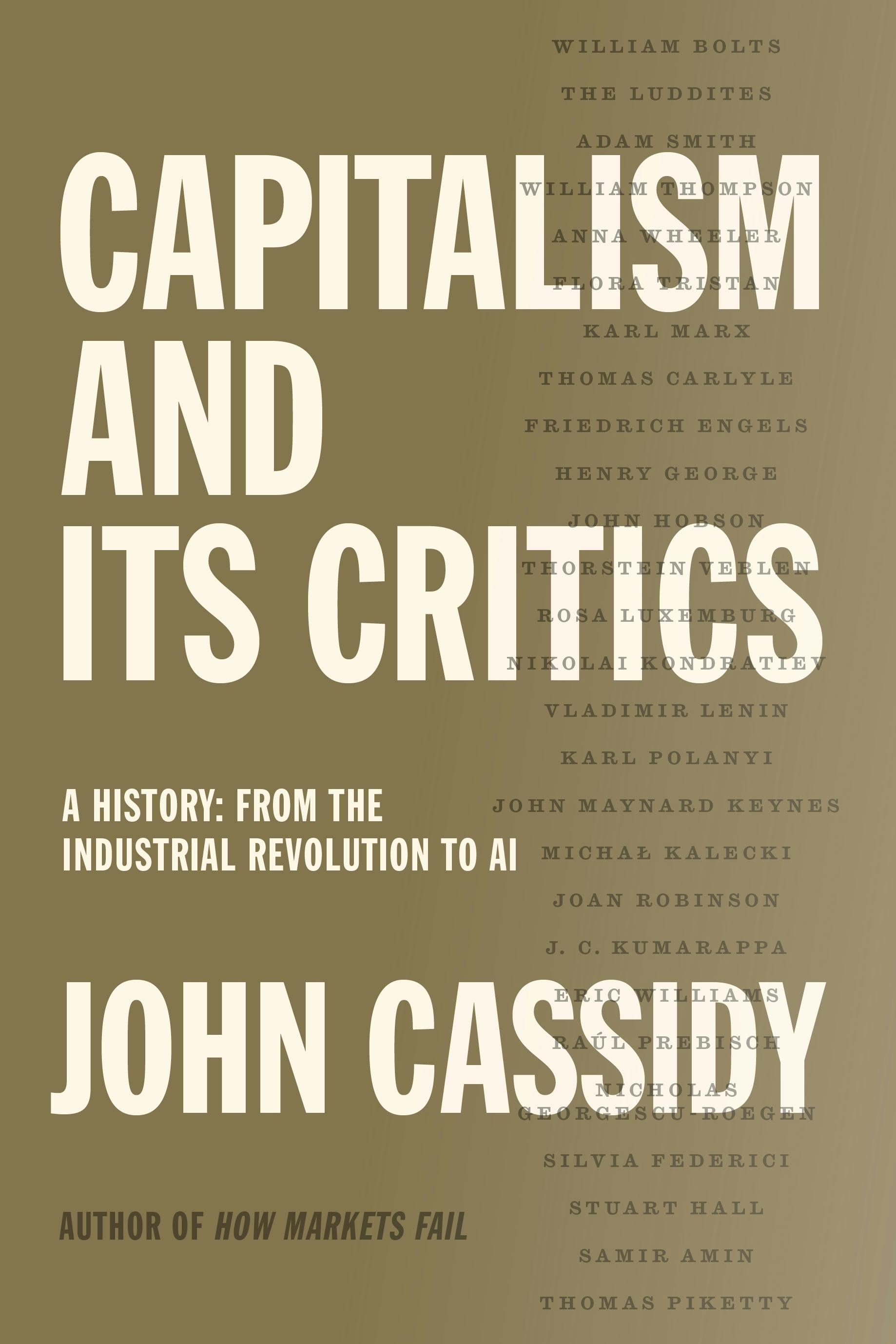JS Right. And, in that sense, the book is very much a book of the moment, because the dominant ideas that have governed the system since World War II—first the Keynesian postwar consensus and then the neoliberal, trust-in-markets vision—seem to have, as you said, run aground. The system is still delivering reasonable economic growth, but voters seem profoundly dissatisfied with the results. And so you’ve seen the emergence of these various alternatives to the older models. How do you make sense of where we are and where we’re going?
JC When I was growing up, many people took it for granted that Keynesian managed capitalism was sustainable, and later, in the Tony Blair / Bill Clinton era, even some people on the center left accepted Margaret Thatcher’s claim that there was no alternative to free-market capitalism. But I think a lot of the big basic questions about the system are coming back again.
I’m not claiming that most people are saying “Let’s get rid of capitalism,” because it still delivers the bacon, to some extent. But I do think that many people are looking for a way to make it work better for everybody, and not just for the few. And that’s basically the main point of the book: that these big questions have never been permanently resolved. Capitalism has these amazing powers of self-regeneration and sustainability and survivability. But it does get reshaped in very fundamental ways over the years. And it seems like this is another moment of transition.
What’s not clear is what the reshaping is going to look like. The last chapter of my book tries to deal with this, and asks: Is there a new paradigm? You could imagine that if AI develops in such a way that we get a massive shift in the distribution of income toward capital, we’ll just have a sort of monopoly tech capitalism, perhaps with a universal basic income to make it more palatable to the masses. But then you have other potential models, such as Chinese state capitalism; Trumpian, right-wing populist, economic nationalism; and then whatever the left candidate is. Intellectually, it’s interesting. Socially and politically, it’s kind of terrifying.
